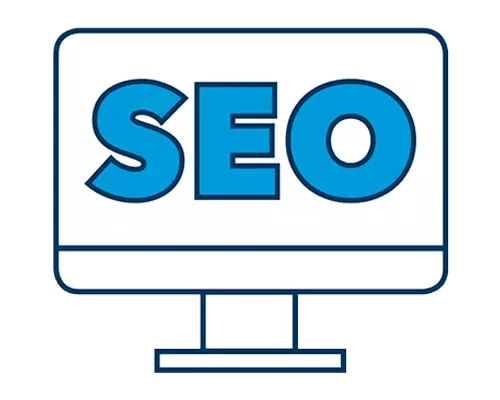E-commerce SEO Services To Boost Sales
Boost your online sales with our e-commerce SEO services. Secure, scalable, and user-friendly solutions to drive growth. 🚀 Start boosting sales today!
- Professional
- ROI Focused
- Transparent
- Effective

Is Your Website Not Converting Visitors?
Increase Traffic and Conversions with Our Effective SEO Services.
Our SEO Process
Our dedicated SEO team employs a personalized approach from start to finish, delivering unique SEO strategies designed to boost your search engine rankings and meet your specific business goals.
Initial SEO Audit
We begin with a thorough SEO audit of your website to identify strengths, weaknesses, and opportunities for improvement.
Keyword Research
Our team conducts in-depth keyword research to identify the most relevant and effective keywords for your industry and target audience.
On-Page Optimization
We optimize your website’s on-page elements, including meta tags, headers, content, and images, to ensure they align with SEO best practices.
Content Strategy
We develop a content strategy that includes creating high-quality, engaging content tailored to your audience and optimized for search engines.
Link Building
Our team implements a link-building strategy to acquire high-quality backlinks from authoritative sites, boosting your website’s authority and rankings.
Monitoring & Reporting
We continuously monitor your website’s performance and provide detailed reports, offering insights and recommendations for ongoing improvement.
SEO Services & Website Design
Overview of E-commerce SEO
E-commerce SEO focuses on optimizing online stores to improve their visibility in search engine results, attract more traffic, and increase sales.
Unlike traditional websites, e-commerce sites require unique strategies to optimize product pages, category pages, and the overall site structure.
At Symaxx Digital, our e-commerce SEO services are designed to help your online store rank higher, drive more organic traffic, and boost sales.
Importance of E-commerce SEO
With the growing competition in the e-commerce space, simply having an online store is not enough. Effective e-commerce SEO ensures that your products appear at the top of search results when potential customers are looking for them.
This not only increases visibility but also drives qualified traffic, leading to higher conversion rates and revenue. E-commerce SEO helps you reach a broader audience, improve user experience, and stay ahead of your competitors.
Key Components of E-commerce SEO
1. Product Page Optimization
Product pages are the heart of any e-commerce site. Optimizing these pages ensures they rank well in search engine results and provide a great user experience.
- Crafting Effective Product Titles and Descriptions
- Keyword Research: Identify and use relevant keywords in your product titles and descriptions.
- Compelling Titles: Create clear and concise product titles that include primary keywords.
- Detailed Descriptions: Write unique and informative product descriptions that highlight key features and benefits, incorporating secondary keywords naturally.
- Optimizing Images and Videos
- High-Quality Images: Use high-resolution images with descriptive alt text to improve SEO and accessibility.
- Product Videos: Include product videos to enhance user experience and increase engagement.
- Image Compression: Ensure images are optimized for fast loading without sacrificing quality.
2. Category Page Optimization
Category pages help organize your products and improve navigation. Optimizing these pages can significantly boost your SEO efforts.
- Best Practices for Category Pages
- Keyword Optimization: Use relevant keywords in category titles, meta descriptions, and headers.
- Content Addition: Add unique content to category pages, such as introductory texts and FAQs, to provide more context and improve rankings.
- Internal Linking: Link to relevant product pages and other categories to enhance navigation and distribute link equity.
- Internal Linking Strategies
- Related Products: Link to related products within product descriptions and category pages.
- Breadcrumb Navigation: Implement breadcrumb navigation to improve user experience and internal linking structure.
- Cross-Selling and Up-Selling: Use internal links to suggest complementary products and higher-end options.
3. Technical Considerations for E-commerce
Technical SEO ensures that search engines can crawl and index your site efficiently, and that users have a smooth browsing experience.
- Site Architecture and URL Structure
- Logical Hierarchy: Organize your site with a clear and logical hierarchy to make it easy for search engines to crawl.
- Clean URLs: Use descriptive and SEO-friendly URLs that include primary keywords.
- Implementing SSL and Secure Payment Gateways
- SSL Certificates: Ensure your site uses HTTPS to protect customer data and improve SEO rankings.
- Secure Payment Options: Offer secure payment gateways to build trust with customers and comply with search engine guidelines.
- Site Speed and Mobile Optimization
- Page Load Speed: Optimize your site’s load speed to enhance user experience and improve search rankings.
- Mobile-Friendliness: Ensure your e-commerce site is fully responsive and provides a seamless experience across all devices.
Tools and Resources for E-commerce SEO
- SEO Tools
- Google Search Console: Monitor and maintain your site’s presence in Google search results.
- Ahrefs: Conduct keyword research, analyze backlinks, and track rankings.
- SEMrush: Perform comprehensive site audits, keyword research, and competitive analysis.
- E-commerce Platforms and Plugins
- Shopify: An e-commerce platform with built-in SEO features and additional SEO plugins.
- WooCommerce: A customizable e-commerce plugin for WordPress with various SEO extensions.
- Magento: A powerful e-commerce platform with advanced SEO capabilities.
- Analytics and Reporting Tools
- Google Analytics: Track visitor behavior, conversion rates, and e-commerce metrics.
- Hotjar: Analyze user behavior with heatmaps, session recordings, and surveys.
- Kissmetrics: Measure and optimize customer engagement and conversions.
Examples and Case Studies
Example 1: Fashion Retailer
- Challenge: A fashion retailer needed to increase online sales and improve visibility in a competitive market.
- Solution: Optimized product and category pages, implemented a robust internal linking strategy, and improved site speed.
- Results: Achieved a 50% increase in organic traffic and a 40% boost in online sales within six months.
Example 2: Electronics Store
- Challenge: An electronics store wanted to enhance their SEO to compete with larger retailers.
- Solution: Conducted a comprehensive SEO audit, optimized product pages, and implemented secure payment gateways.
- Results: Saw a 60% increase in search engine rankings and a significant rise in online transactions within four months.
Example 3: Health and Wellness Shop
- Challenge: A health and wellness shop needed to improve their e-commerce SEO to attract more customers.
- Solution: Optimized images and videos, added unique content to category pages, and improved mobile-friendliness.
- Results: Experienced a 70% increase in mobile traffic and a 50% growth in online sales within five months.
Call to Action
Ready to boost your online store’s visibility and sales with our expert e-commerce SEO services? Contact us today to discuss your project and discover how we can help you achieve your business goals.
FAQs - E-commerce SEO Services
What is e-commerce SEO?
E-commerce SEO involves optimizing online stores to improve their visibility in search engine results, attract more traffic, and increase sales.
Why is e-commerce SEO important?
E-commerce SEO is crucial for driving organic traffic to your online store, increasing visibility, and boosting sales in a competitive market.
How can I optimize my product pages for SEO?
Optimize product pages by conducting keyword research, crafting compelling titles and descriptions, and using high-quality images and videos with descriptive alt text.
What are the best practices for category page optimization?
Use relevant keywords in category titles and descriptions, add unique content, and implement an effective internal linking strategy.
How do technical SEO considerations impact my e-commerce site?
Technical SEO ensures search engines can crawl and index your site efficiently, and that users have a smooth browsing experience. This includes optimizing site architecture, using clean URLs, and improving site speed.
What tools can help with e-commerce SEO?
Tools like Google Search Console, Ahrefs, SEMrush, Google Analytics, Hotjar, and various e-commerce platforms and plugins can assist with different aspects of e-commerce SEO.
How do I get started with e-commerce SEO?
Getting started with e-commerce SEO involves conducting an SEO audit, optimizing product and category pages, and using the right tools and strategies to improve your site’s visibility and performance. Contact us to get expert help with your e-commerce SEO strategy.
What Our Clients Say
Trustindex verifies that the original source of the review is Google. GoodTrustindex verifies that the original source of the review is Google. Is a lovely place , affordable and cool place . have great service, prompt responses and they always ensure that as a customer,we taken careTrustindex verifies that the original source of the review is Google. The most award winning digital Agency I know is the best no scamsTrustindex verifies that the original source of the review is Google. People are well taken care ofTrustindex verifies that the original source of the review is Google. I am in awe of the service they provide. I was at wits end with unreliable digital companies. But Symaxx digital showed me how much passion they have for what they do. We were on the brink of giving up. But Symaxx insured positive results and within 1 week it was evident. Thank you so much from the bottom of our hearts for all your help. We still don't know when they sleep, as it seems like they work 24/7, but they assured me they do sleep😁Trustindex verifies that the original source of the review is Google. Symaxx Digital or should we say leaders in Website Design & Maintenance, SOE Services and Digital Marketing Agency with unique bespoke development that caters for all types of vertical clientele. @Synergy Evolution we were amazed by their professionalism, dedication and knowledge and would recommend them to anyone who appreciate high quality bespoke services. Synergy Evolution has a partner for Many Years To Come. 🥇Awards are well deserved and more will come. 🥂🤘🏼Trustindex verifies that the original source of the review is Google. GoodTrustindex verifies that the original source of the review is Google. It Works - we had tried SEO services before with another provider and we where not happy with the results. We decided to give it another go with Symaxx Digital in Pretoria and we couldn't be happier because we stared getting more calls in just under a month. I recommend Symaxx Digital SEO services and website design to anyone because they are value-packed and they work all the time.Trustindex verifies that the original source of the review is Google. I had to submit some documents to CIPC and as part of the process was a need for a website. I'm not sure how these guys work but they delivered a great looking website design in 24 hours. The price isquite competitive but worth it.Load more













